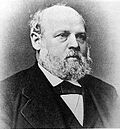Births

- 12 May – Adolf von Henselt, German composer (d. 1889)
- 26 May- Heinrich Geißler, German physicist (d. 1879)
- 10 August – Henri Nestlé, German-born Swiss chocolate magnate (d. 1890)
- 2 September – Ernst Curtius, German archaeologist, historian (d. 1896)
- 2 November= Julius von Mayer, German physician, physicist, one of the founders of thermodynamics (d. 1878)
- 26 November – Luise Aston, German author, feminist (d. 1871)
